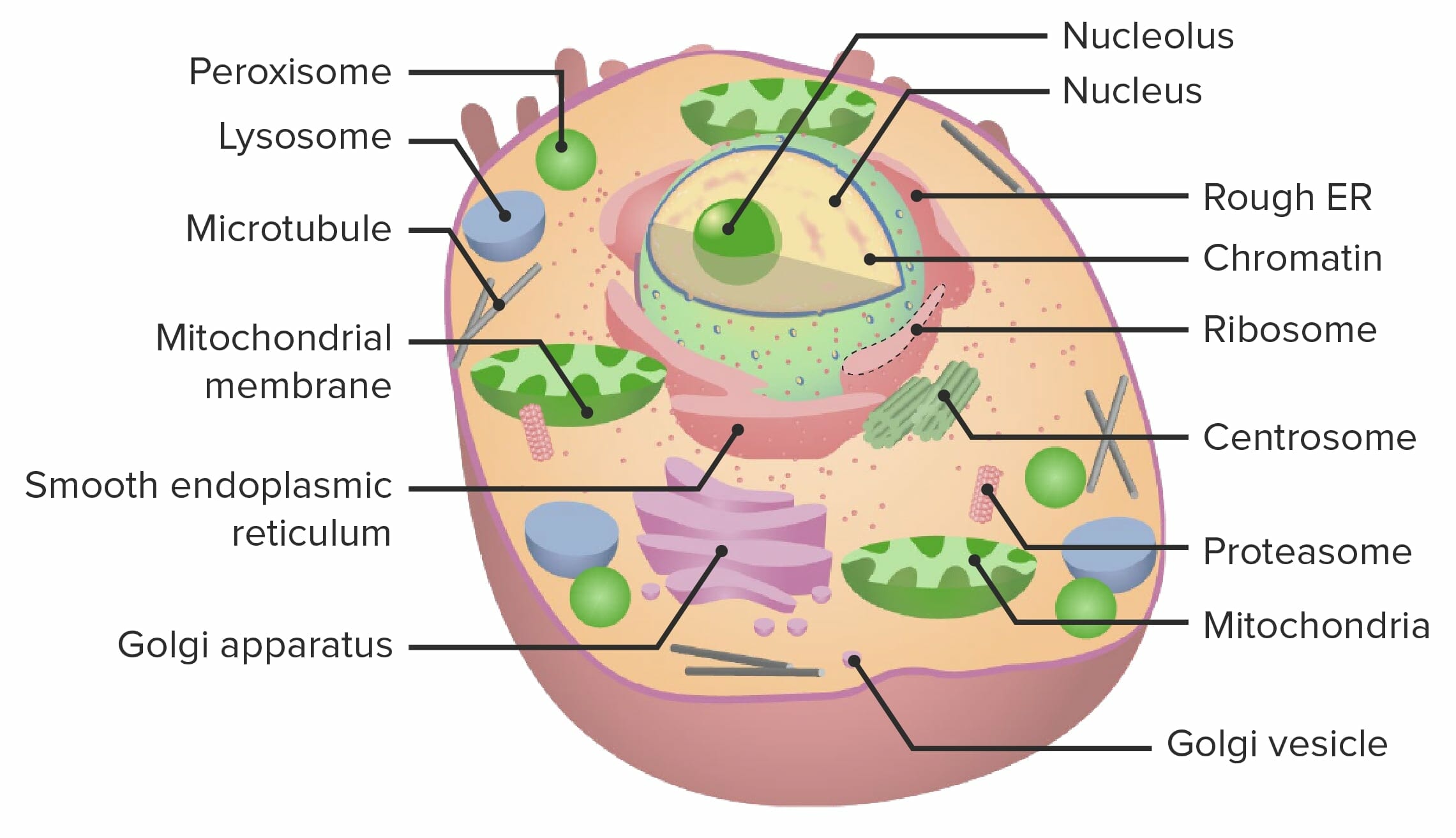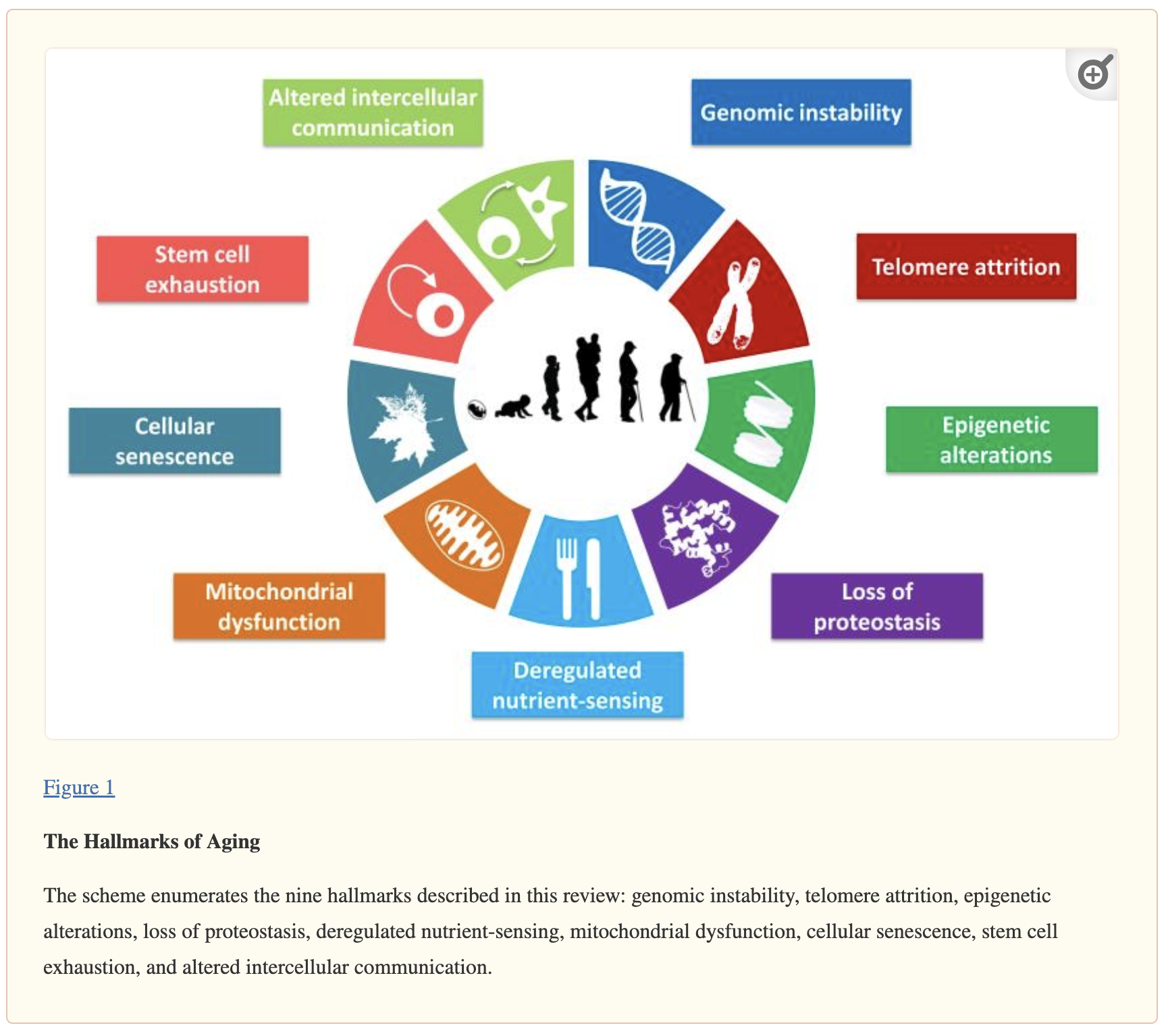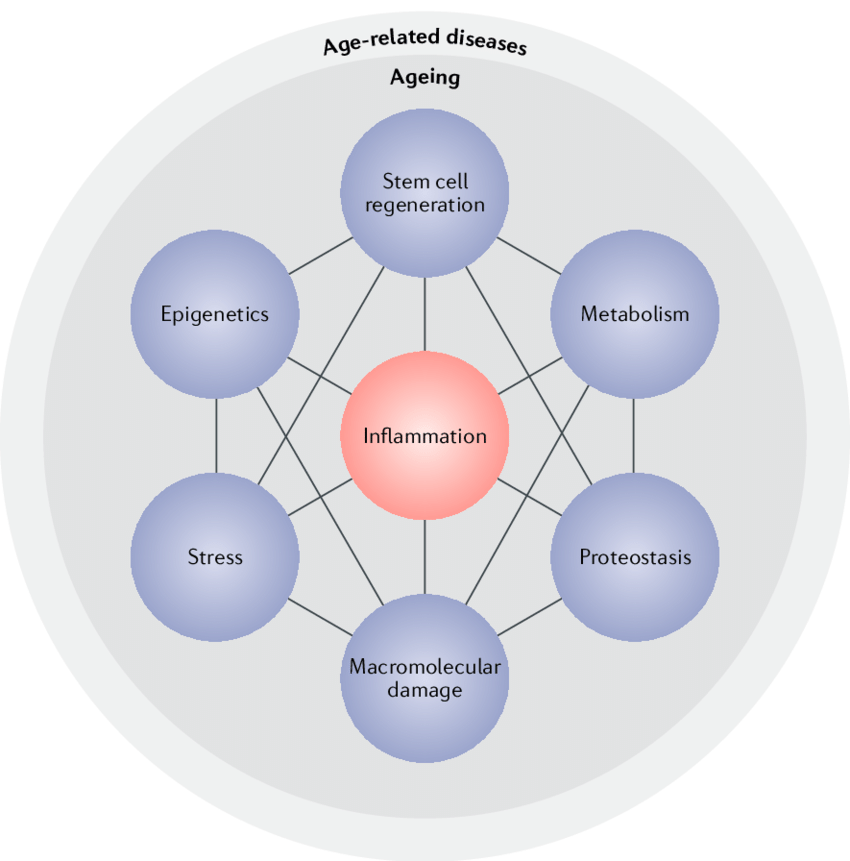Longevity Research

If we don't find a way to prevent age-related diseases, we're just setting ourselves up for a lot of unnecessary suffering. The current medical paradigm waits until you get an age-related disease to treat it, rather than prevent it from happening in the first place. Longevity research matters, as it tries to solve the underlying cause of age-related-diseases and thus may lead to interventions that improve human health- and lifespan.
Introductions
- Longevity FAQ by Laura Deming
- In-depth Longevity FAQ by José Ricon (Article)
- In-depth Longevity FAQ by José Ricon (Video)
- Norns Longevity Journal Club
- Norns Age-related diseases overview
- Eleanor Sheekey’s Videos
- Partial reprogramming deep dive: the good, bad, and partially unresolved by Ada Nguyen
- Bottlenecks of Aging
“The Science of Aging” Seminar with Martin Borch Jensen
Longevity: what we know so far by José Ricon
Essentials of Cell Biology
- Proteins play structural, transport, signaling and storage roles in cells, as well as acting as enzymes.
- Small molecules such as phenolic compounds, alkaloids and sugars can regulate biological processes.
- Nucleic acids, like DNA and RNA, store and carry information, with messenger RNA carrying information from DNA to ribosomes. In addition, water, small molecules, inorganic ions, carbohydrates, and lipids are also found in cells and are important for various functions such as providing nutrients, energy storage and cell structure.

Molecular Biology
Molecular biology is the branch of biology that studies the molecular basis of biological activity. Living things are made of chemicals just as non-living things are, so a molecular biologist studies how molecules interact with one another in living organisms to perform the functions of life.
Molecular biologists conduct experiments to investigate the structure, function, processing, regulation and evolution of biological molecules and their interactions with one another — providing micro-level insights into how life works.
Although there are many kinds of molecules in every living thing, most molecular biologists focus on genes and proteins. Proteins perform a huge diversity of functions within living cells and genes contain the information required to make more proteins.
In order to understand how cells work, it is essential to understand the basics of genes, transcription, translation, and gene expression regulation. Additionally, epigenetics, chromosomes, and telomeres are important concepts that help to explain how the genome is organized and how it can change over time.
Finally, pathways, genome instability, sirtuins, reactive oxygen species (ROS), mitochondria, cellular senescence, autophagy, and the role of the brain and gut in inflammation are all important topics that can help to explain how the body works at a molecular level.
Central dogma of molecular biology
- DNA makes RNA (both nucleic acids) makes protein (amino acids)
- Khan academy playlist for molecular biology + Molecular biology of the cell
Mechanisms of Aging
Aging is a major contributor to cardiovascular disease, cancer, diabetes, neurodegenerative diseases, and other causes of death and impairment.
The possible research interventions that could address this problem include: preventing the accumulation of epigenetic errors associated with aging, or restoring more youthful epigenetic states in cells; solving the problem of senescent cell accumulation; reversing stem cell exhaustion; and learning how to use induced pluripotent stem cells (IPSCs) to regenerate and/or replace tissues and organs damaged by aging and aging-related diseases.
Substantial progress on many of the themes mentioned above is likely to require decades of work, OpenPhil’s intuition is that long-term, basic research (with an emphasis on tool development) in areas like neuroscience, selective delivery of agents to cells and/or organelles, and epigenetics is likely to be the most important work for making the greatest possible progress relevant to age-related disease and impairment in the long run.
Aging is a process of accumulating damage. This damage can be at the cellular level, at the tissue level, or at the organismal level. Reprogramming can be said to rejuvenate cells because it leads to a cell that is indistinguishable from a young cell. This is not the same as saying that reprogramming solves aging, or that it can be used to rejuvenate tissues, or that it can be used to rejuvenate an organism. Reprogramming does not address the issue of DNA mutations, which is one form of cellular damage that accumulates with age.
Graphics
- good start, but hoping for much better ones, let me know if you know of better ones or are working on any that give an overview of the field
Hallmarks of aging

The seven pillars of aging

“Adaptation to Stress
- Bridge continuum from psychological to molecular stresses.
- Differentiate hormesis from toxic stress.
- Better align human and animal studies.
Epigenetics
- Biomarker development: chronological vs. biological aging.
- Link age-related environmental inputs to epigenetic signatures.
- Test small molecules that regulate enzymes controlling epigenetic events.
Inflammation
- Differentiate adaptive and maladaptive inflammatory response.
- Define age-related inflammatory sources and their system effects.
- Determine how obesity and metabolic dysfunction alter inflammation with age.
Macromolecular Damage
- Generate systems level understanding of the role of types of macromolecular damage and their roles in chronic disease states.
- Understanding how stochastic damage influences the variability of aging.
Metabolism
- Define role of signal transduction pathways linked to metabolism in aging processes.
- Understand contribution of circadian clocks to aging and metabolism.
- Connect metabolic dysfunction with tissue-specific decline in aging.
Proteostasis
- Identify proteostatic pathways that are overwhelmed in specific chronic disease states.
- Examine crosstalk between proteostasis machineries.
- Understand non-cell-autonomous signaling and activation of proteostasis pathways.
Stem Cells and Regeneration
- Determine whether declining adult stem cell function drives aging and chronic disease.
- Examine how aging and associated disease impair adult stem cell function.
- Determine how macromolecular damage accumulates in adult stem cell pools.”
Foresight Longevity Tech Tree
Bottlenecks of Aging
This amazing document by the Amaranth Foundation outlines several priorities:
- Accelerating Aging Drug Market Entry: Highlighting the need for new surrogate measures to reduce the timeline of clinical trials for aging drugs, addressing economic and regulatory challenges.
- Understanding the Aging Brain: Investigating age-related cognitive decline, focusing beyond neurodegenerative diseases to understand healthy brain aging.
- Replacing Damaged Tissues and Organs: Emphasizing the importance of organ and tissue replacement as a therapeutic approach, exploring transplantation, xenotransplantation, and patient-derived organs.
- Activating Talent: Addressing the talent scarcity in the longevity field by increasing recruitment and retention in aging research.
- Advancing Biopreservation Technology: Focusing on cryonics, vitrification, and other preservation methods to bridge the gap between current medical capabilities and future advancements.
- Identifying Additional Therapeutic Targets: Emphasizing the need for new drug targets to extend lifespan, leveraging high-throughput screening and genomic studies.
- Increasing Aged Models for Research: Advocating for more accessible and diverse aged animal models to study aging and associated diseases.
- Characterizing Age-Related Damage: Deepening understanding of molecular damage with age and developing interventions for repair and removal.
- Deciphering Germline Immortality Mechanisms: Investigating the rejuvenation capabilities of germ cells to apply these insights across the body.
- Applying New Tools to Aging Problems: Encouraging the use of advanced molecular and computational tools in aging research.
- Forging New Aging Narratives: Changing public perception through new stories and media to legitimize aging research and life-extending technologies.
- Economic Data Collection and Analysis: Building comprehensive datasets to understand the economic impacts of health-extending therapeutics and informing policy.
Get started
- Join us at VitaDAO, collectively funding longevity research
- If you want to enter longevity as an operator, investor or founder, apply to On Decks Longevity Fellowship (recommended from participating)
- How to Help by Laura Deming
- Our VitaDAO Micro-Grants for people entering longevity (up to $3k fast grants)
—
Recommended materials
Overviews and lists
- Senescence Info
- Cambrians Longevity Science Explainers
- Karl Pfleger’s Aging Biotech Lists (books, companies, podcasts etc.)</a>
- The Hallmarks of Aging Paper
- Anti-Aging: State of the Art (lesswrong)
- Rejuvenation Roadmap by Lifespan
- THE INDEX of Alex K. Chen aging content
- Foresight Longevity Tech Tree
- Anti Mortality
- Essentials of Cell Biology
Books
Links
Aging is already solved in vitro
Great podcasts
Appendix
Common misconceptions
- Longevity is not immortality research, but rather research at understanding the causes of human aging, to make sure people live healthier into old age.
- There is no evidence that this would actually be the case. In fact, increased longevity might lead to a wiser and more open society. The best way to ensure that society does not become stagnant is to keep people open-minded and grant them access to knowledge.
“old people aren’t automatically closed-minded and opposed to change. Factors such as education, socio-cultural context, and access to learning opportunities play a big role in this sense. If you’ve been brought up in a progressive, open environment, and have been taught to listen to others, maintain a healthy skepticism even about your own convictions, never stop learning, and never let your gut take your brain’s place when considering a new idea, so why would you suddenly forget all of that and become the exact opposite of yourself in your old age?”
Will progress in age-related research lead to overpopulation?
- Global population is predicted to peak at 9.7 billion by 2064 and decline to 8.8 billion by 2100, four decades earlier and several billion fewer people than what was originally predicted.
- 70 years ago, the global average fertility rate was 5.05, but has more than halved to 2.44 as of 2020.
- With improved standard of living and declining reproductive rates, the problem is going to be global underpopulation. Fewer people means fewer workers. The population will shift towards the elderly, creating a heavier burden on the working population.
- Increasing healthspan by a decade or two may be a critical step in maintaining increased abundance for humanity.
Is extending healthy human age morally ethical?
- The average lifespan has increased markedly in the last two centuries, due to advances in medicine and technology. Aging research is beginning to treat aging as a disease. Competition from other causes of death has pushed aging to the top of the list when it comes to deaths from heart disease, cancer, diabetes, respiratory disease and dementia. So far, no one has recovered from this disease in the history of humanity, but with further research, this could change.
- Many species on Earth have much longer lifespans than humans, indicating that there is potential for humans to extend their healthspan significantly. A recent study showed that adding just one year to global lifespan would benefit the global economy by $38 trillion.
Will aging therapies only be available to the wealthy?
- Many pharmaceutical therapies are very expensive because they are limitd to a very small patient population while still requiring hundreds of millions in research investments.
- For a common disease such as “aging” the cost of a therapy should drop orders of magnitude due to scale. One recent example are the mRNA vaccines, due to its scale of production, the price reduced to a mere $19.50.
- Effects of anti-aging research on the long-term future
- Are too many people going into biomedical research – or too few?
- Aging research - EA Forum
- Mechanisms of Aging
“The social effects of life extension are highly uncertain, and more research in this area is needed to try to determine the magnitude of these effects and whether they are likely to be positive, negative, or neutral from a longtermist perspective. Even if life extension causes a slowdown in technological progress, this may not be a bad thing from a longtermist perspective, as long as technological progress does not stop. I am tentatively optimistic about the social effects of life extension, but this is mainly due to my optimism about the ability of strong democratic institutions to withstand any negative side-effects.” — Great comment by Will Bradshaw on Effects of anti-aging research on the long-term future